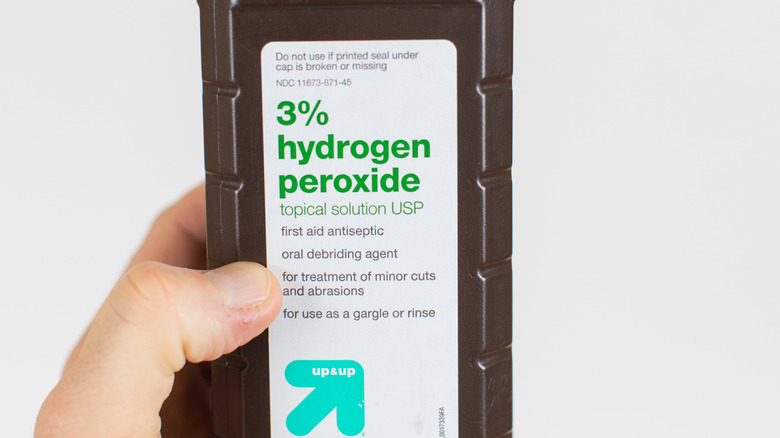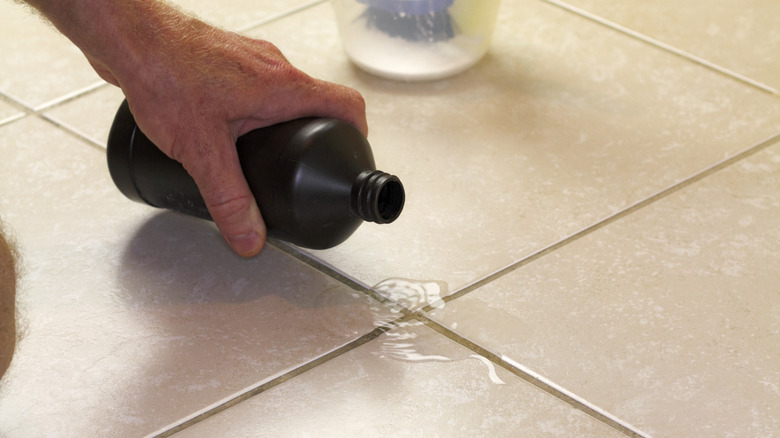This Red Flag When Cleaning Means It's Time To Throw Out Your Hydrogen Peroxide
When it comes to simple cleaning hacks to keep your home tidy, hydrogen peroxide can be a helpful tool to have on hand over harmful ingredients like bleach. In fact, 3% hydrogen peroxide at room temperature may even help kill certain types of harmful bacteria on food prep surfaces, so long as it's used correctly with a contact time of at least 10 minutes. There are multiple types of stubborn household stains you can get rid of with hydrogen peroxide, too. If you're noticing that your bottle of hydrogen peroxide is no longer fizzing as it used to, though, this could be a red flag that the product has expired and that you will need to safely dispose of it.
Hydrogen peroxide from drugstores usually contains 3% of the active ingredient that has been diluted in water. The average shelf life of an unopened bottle of hydrogen peroxide is between one and three years. That said, once you've opened and started using the bottle, the shelf life gradually begins to decrease rapidly. The product may be good for only around six months (to a year max) in this case. You might even notice less fizziness after just one month. For this reason, it's important to recognize a lack of fizzing as a warning sign that the hydrogen peroxide cannot oxidize. You can test this by pouring a small amount into a sink, or even on a slice of a potato. No fizz or bubbles likely means the disinfectant solution is no longer active and that the bottle primarily consists of water.
What to do if your hydrogen peroxide stops fizzing
Expired hydrogen peroxide isn't necessarily unsafe if you still use it as directed. The downside is that may no longer be effective as a cleaning agent. Therefore, you're better off getting rid of the bottle and buying a new one once you notice that your hydrogen peroxide fizzes less than before.
If you have a traditional bottle with 3% hydrogen peroxide, it may be safe to dispose of small amounts down your drain at a time, followed by plenty of running water. However, you should always double-check waste disposal rules per local regulations, as this strategy isn't legal in all areas. In cases where you're not allowed to pour hydrogen peroxide into the sink, consider contacting your local waste management company for guidance. You should also call them if you have hydrogen peroxide of a higher concentration.
While you can't stop the natural decomposition of hydrogen peroxide once you've opened the product bottle, there are a few tricks that can help preserve its overall shelf life. For instance, make sure to keep the liquid in its original bottle and store it in a cabinet to prevent heat and light exposure. After opening the container, try to close it immediately as soon as you get the desired amount of liquid. Also, combining hydrogen peroxide with other cleaning ingredients will not make an expired product any more effective. As a reminder, you should never mix the product with vinegar, since it could lead to dangerous fumes. If you do decide to purchase a new bottle, explore the many surprising ways to use hydrogen peroxide in your home.

